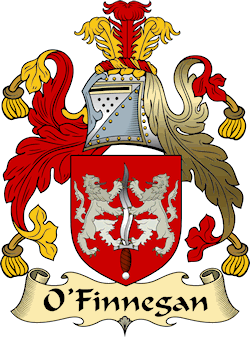|
|
Search

|
  Home Home
|
  Surname Surname
|
  First Name First Name
|
Popular Products

|
  Coat of Arms Coat of Arms
|
  Clan Badges Clan Badges
|
  Books & Gifts Books & Gifts
|
  Celtic Jewelry Celtic Jewelry
|
  Black Shirts Black Shirts
|
  CD Music CD Music
|
  Download Download
|
 Design Gallery
Design Gallery

|
  Irish Irish
|
  Flags Flags
|
  Celtic Celtic
|
  Tartans Tartans
|
  Scottish Scottish
|
  Claddagh Claddagh
|
  Surnames Surnames
|
  Highlander Highlander
|
  Celtic Radio Celtic Radio
|
Research

|
  History History
|
  Country Country
|
  Families Families
|
|
|
|
|
 Our store includes not only customized products, but select clothing items from brand name house hold names like Champion, Izod, WeatherProof, Adidas and more. For those in rural areas or that are home bound, we offer a separate clothing store containing thousands of items that can be purchased quickly with expedited service and shipping (hard to find larger sizes are available). We offer a wide selection of popular Celtic and Medieval books, Jewelry, Gifts, Accessories (such as caps and designer bags), Mouse Pads, Coat of Arms Plaques, Surname History PDF files, Bumper Stickers and Coat of Arms Downloads.
|
|
Our Heraldry Database has thousands of Family histories to search. Visit Now!
Harris

Coat of Arms
Harris means 'Son of Harry' or 'Harry's Son'. Harry is a pet form of Henry. Harry was the regular pronunciation of Henry during the Middle Ages, but is not often found in early documents as the Latin version of Henricus was used instead.[4] Henry is the Anglicised version of Henri which was introduced into Britain by the Normans in 1066. Henri means "home ruler".
Early records suggest t.....
|
|
|
Heraldry Database: OÂ'finnegan
OÂ'Finnegan

|
|


Surname: OÂ'Finnegan
Branch: O'Finnegan
Origins: Irish
More Info: Ireland
|
|
Background: There are two distinct septs of Finnegan or Finegan whose name is O Fionnagain in Irish, which means the descendants of Fionnagan, an old Irish personal name derived from the word fionn, I.e fairheaded. One of these septs was located on the border of Cos. Galway and Roscommon where there are two places called Ballyfinegan - one in the barony of Balymoe and the second nearby in the barony of Castlereahg. The other is a Breffny sept. The present day bearers of the name - it is seldom found with its proper prefix O - hail chiefly from the localities of their origin; the majority belong to Cavan and adjacent counties, with a fair proportion to south Connacht. An entry in the "Annals of Loch Ce" telling of the destruction by the O'Byrnes in 1405 of a place called Newcastle O'Finnegan, as well as a reference in one of the Elizabethan fiants, suggests that in mediaeval times Finnegans were also located in Co. Wicklow. Finnegans have not been prominent in the cultural or political history of Ireland. The name is, of course, familiar on account of the novel Finnegans Wake by James Joyce: the title of his novel is that of an old Dublin ballad from which Joyce took it.
|
 Motto: Motto: Malo Mori Quam Foedari, Death before dishonour. Arms: Gules two lions rampant combatant argent supporting a sword in pale blade wavy point upwards proper. Crest: A falcon alighting proper. View the Heraldry Dictionary for help.

One of the tribes of Hy Maine, in Connaught, formerly Mac Giolla Fionnagain; they possessed the territory of Clan Fhlaithoamhain. Hundreds of years ago, the Gaelic name used by the O'Finnegan family in Ireland was "O Fionnagain" derived from the word "fionn", denoting a fair headed person. This interesting surname is of Irish origin, and is an Anglicization of the Gaelic "O' Fionnagain", meaning the descendant(s) of Fionnagan, an Old Irish personal name derived from the word "fionn", white, fairheaded. There are two distinct septs of this name; one was located on the border of Counties Galway and Roscommon, and the other was located in Oriel, which covered Counties Armagh, Monaghan and parts of South Down, Louth and Fermanagh, and was known originally as "Orghiall". However, Finnigan or Finnegan has the same source as the surname Finn, which means that Finnigan could be a diminutive of Finn; the first recording (see below) is from this source. Traditionally, Irish family names are taken from the heads of tribes, or from some illustrious warrior, and are usually prefixed by "O", meaning "grandson or male descendant of", or "Mac", denoting "son of". Today the name is seldom found with the prefix "O", and it is mainly found in County Cavan and adjacent counties, with a fair proportion in south Connacht; the surname is also well recorded in South Munster. The name is familiar because of the novel "Finnegans Wake", written by James Joyce in 1939. Among the recordings from Irish Church Registers is the baptism of Barnard, son of Patrick Finnigan and Rose Blynn, in 1827, in County Sligo. The first recorded spelling of the family name is shown to be that of Reverend John O' Finn, which was dated 1369, recorded at Granard, County Longford, Ireland, during the reign of William de Windsor, Governor of Ireland, 1369. Surnames became necessary when governments introduced personal taxation. In England this was known as Poll Tax. Throughout the centuries, surnames in every country have continued to "develop" often leading to astonishing variants of the original spelling.
Name Variations: O'Finnegan, O'Fionnagain, fionn, Finnegan, Fionnagain, Fionna, Finigan, O'Finegan, Finegan.
References:One or more of the following publications has been referenced for this article.The General Armory; Sir Bernard Burke - 1842.
A Handbook of Mottoes; C.N. Elvin - 1860.
Irish Families, Their Names, Arms & Origins; Edward MacLysaght - 1957.
The Surnames of Ireland; Edward MacLynsaght - 1957.
The Book of Irish Families Great and Small.
Surname Database: http://www.surnamedb.com/Surname/Finnigan


Discuss
|
 Search
Search
|

Sign-up for a Founders account and receive personalized
family heraldry service and much more!

Want to know more?
Click the Heart!
|
|
|



